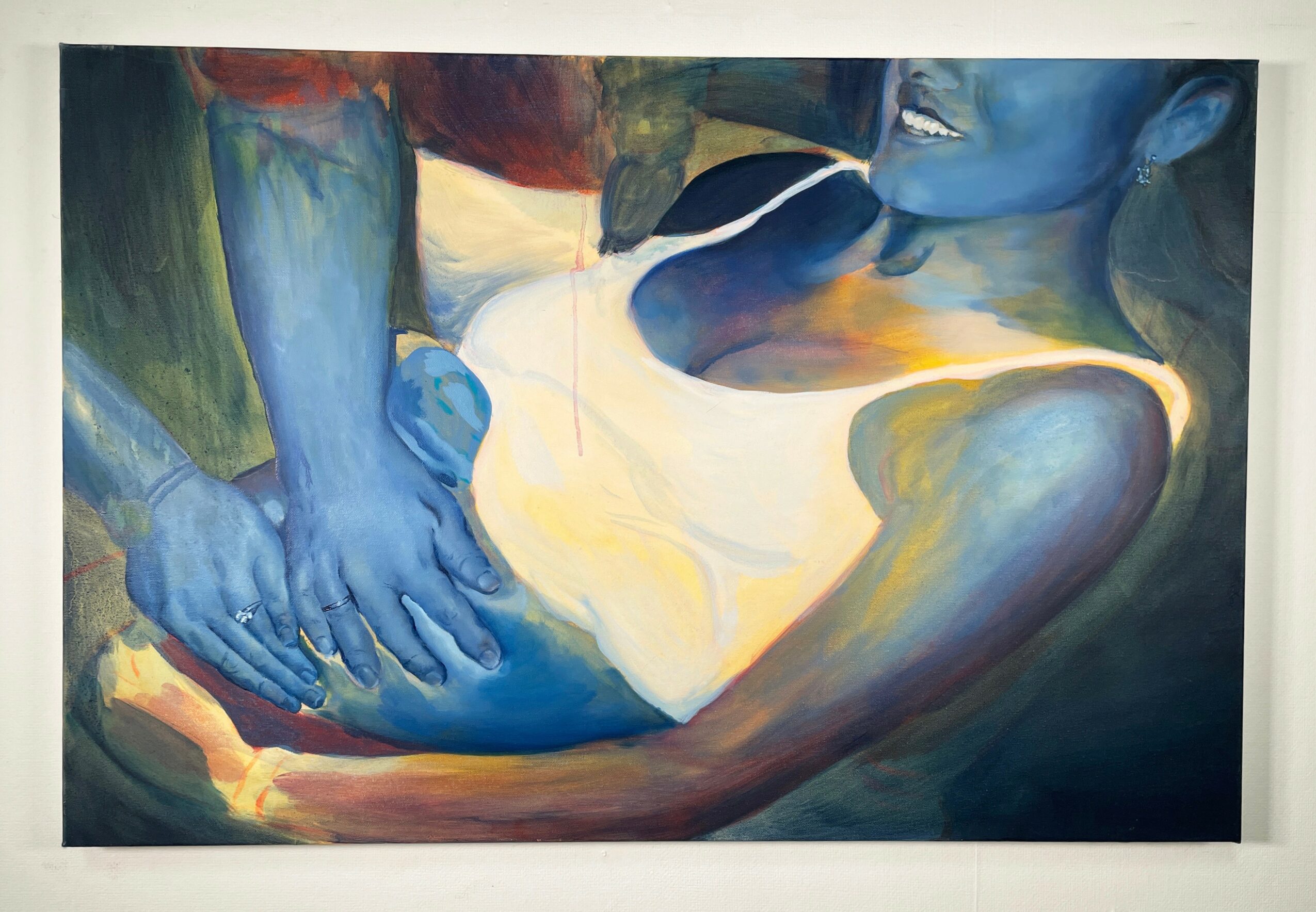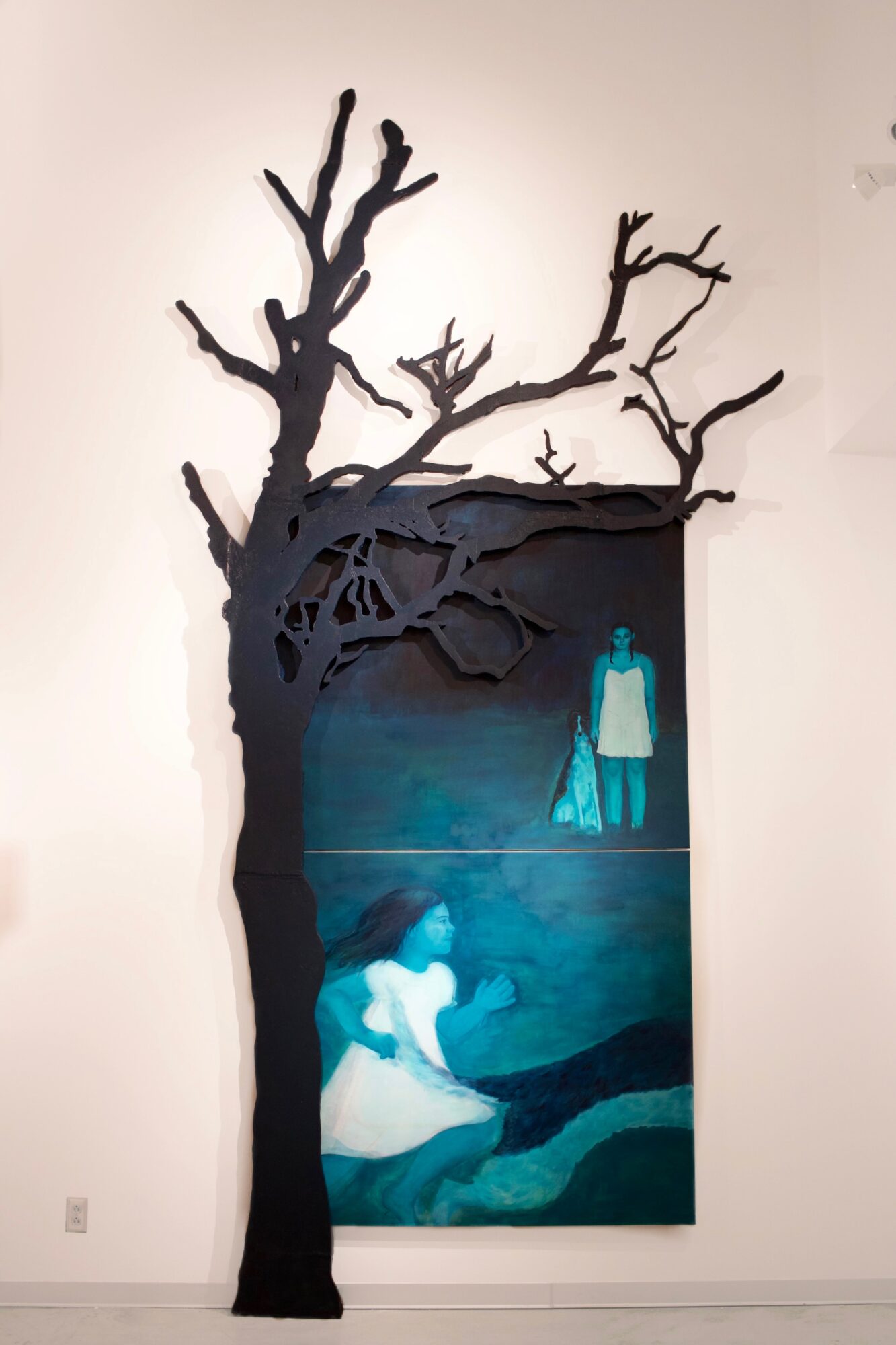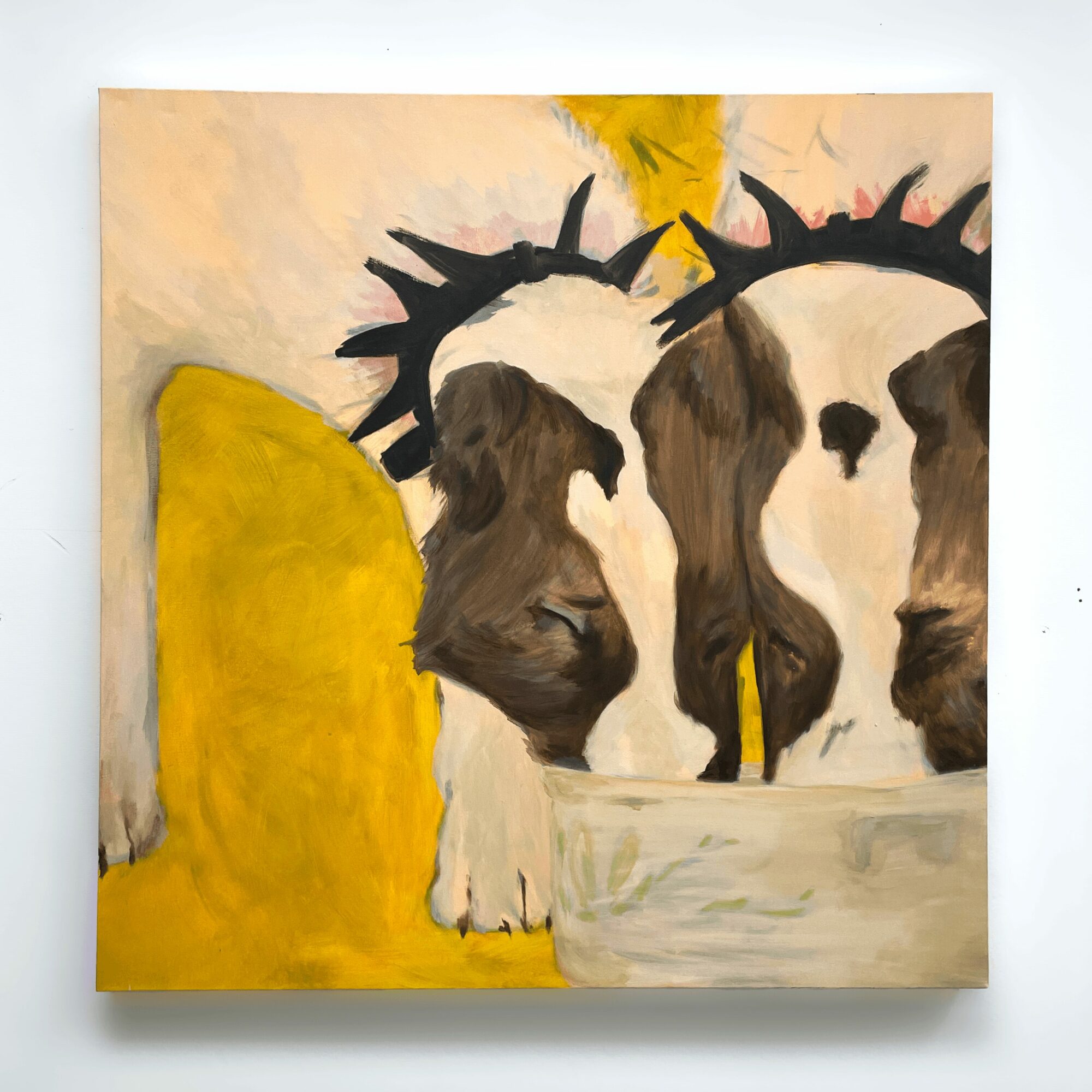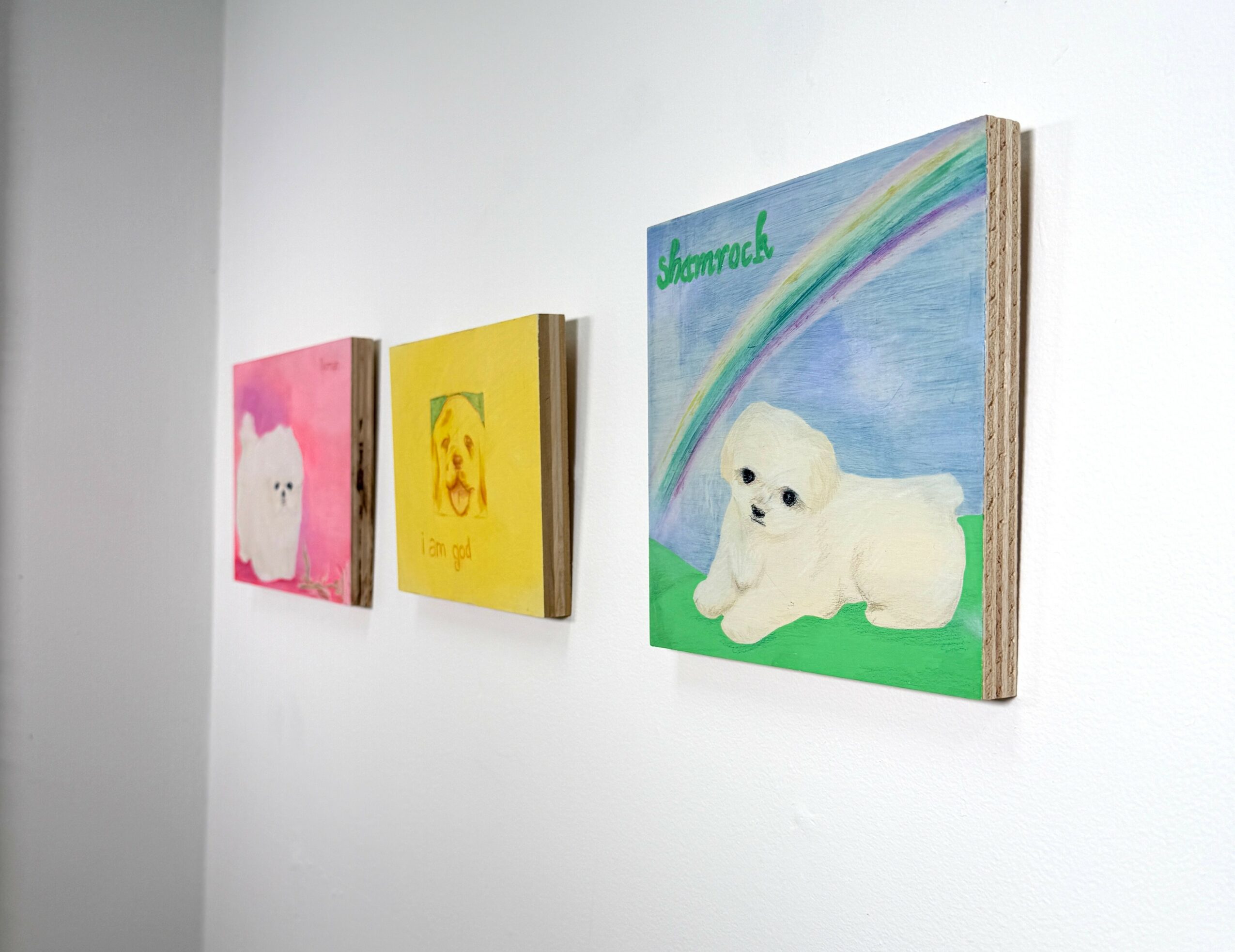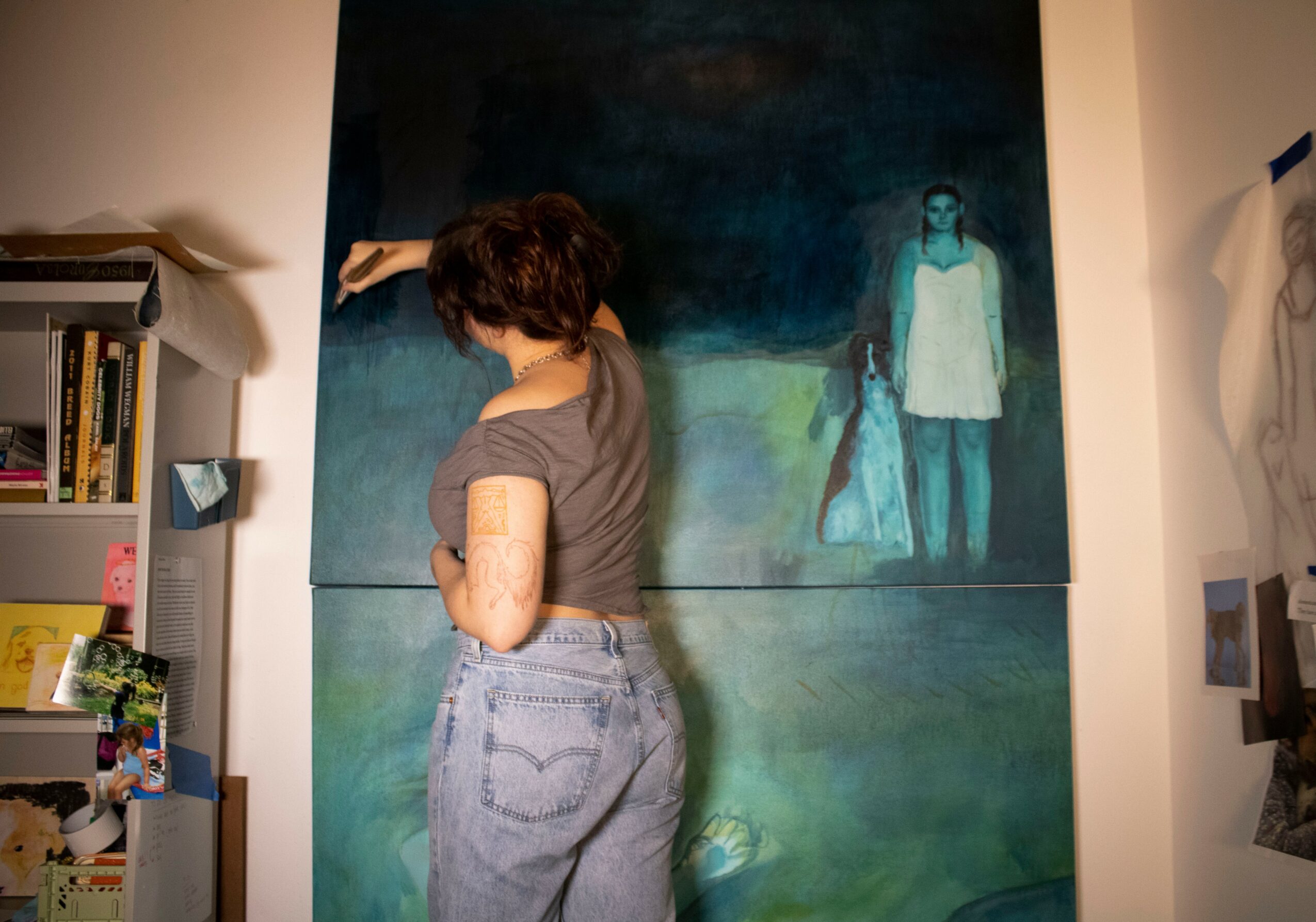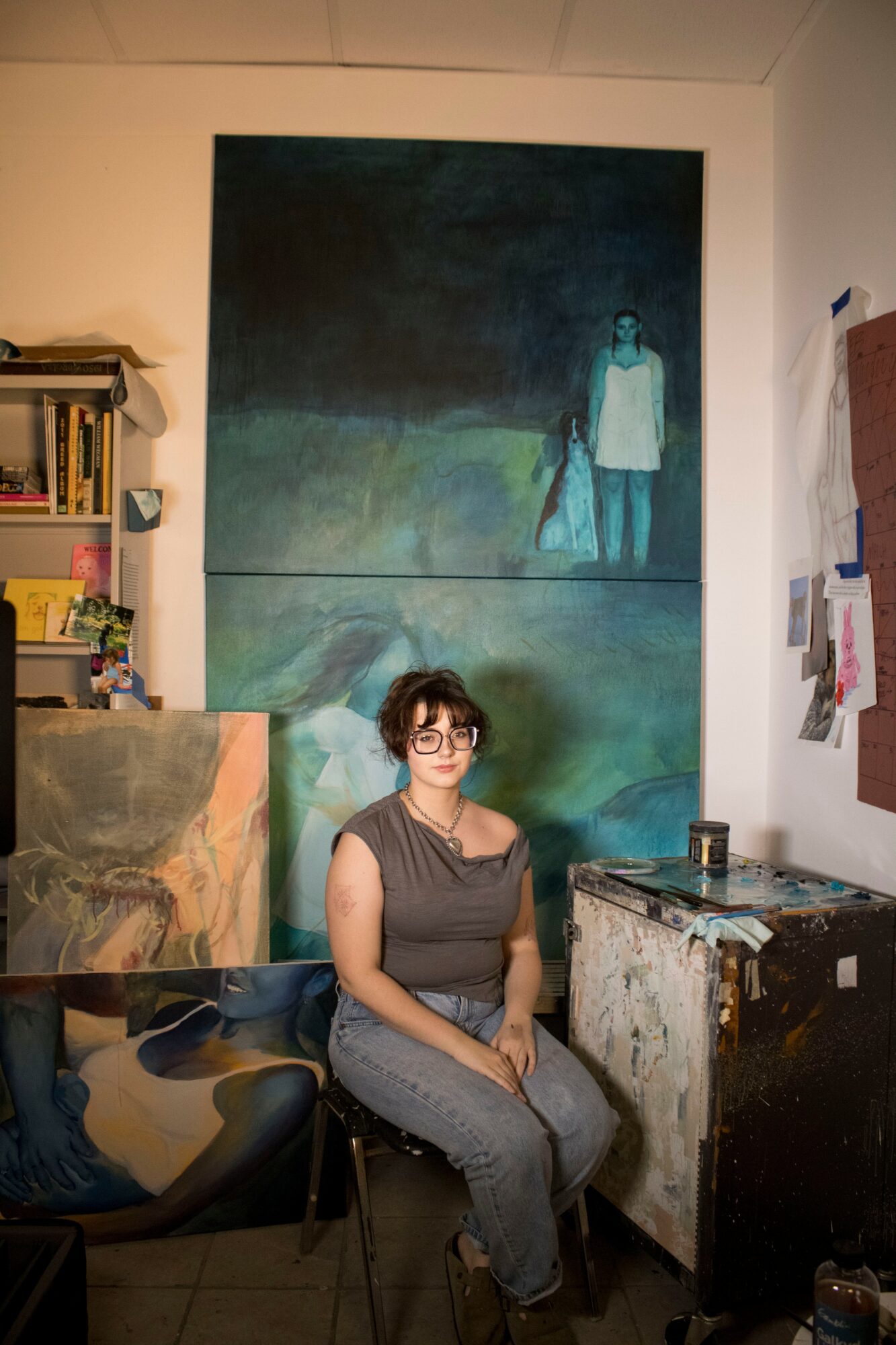

Today we’d like to introduce you to Jessa Shedd.
Hi Jessa, thanks for sharing your story with us. To start, maybe you can tell our readers some of your backstory.
I grew up in Lawrenceburg, a small, rural town in middle Tennessee, almost on the Alabama border. It’s the kind of town where everybody knows each other, and if you don’t know them, your mama does, and if she didn’t know them, her mama did. My parents seemed to know everyone, so I grew up doing a lot of handshaking and “Nice to meet you’s”. My parents had me somewhat late in life, and my sister was twelve-and-a-half years older than me, so I spent a lot of my time growing up around adults or by myself. I had friends, and my parents and sister would play with me when they could, but to be honest, I really enjoyed being by myself. I liked to draw and read, and play with Barbie dolls, which were all things I didn’t need anyone else to do.
I was a voracious artist as a child. I kept art supplies in almost every room in the house and every bag I carried. I went through reams of paper and boxes of crayons. I brought my sketchbook to show-and-tell and forced all my classmates to listen to my creative ramblings as my teacher gently tried to tell me my time to share was up. Creating was like my lifeforce, until it wasn’t.
I hit a wall so to speak once I hit my teenage years and art became the bane of my existence. Nothing I was creating seemed to have any merit to me. It wasn’t original, and it didn’t look like a masterpiece, so what was the point? I tried every style and art material I could think of to try and appease my incredibly harsh inner critic, but nothing seemed to satiate her. One night my frustrations bubbled up so much that I stormed down the stairs and announced to my dad that I had decided to quit art entirely, which we both knew wouldn’t last. I started drawing again that same evening and had to sheepishly admit that I had decided to give it another chance.
I started to assume I’d feel like this forever and that maybe this is just what artists felt like, until I discovered oil paint.
For me, oil paint was like magic. It fixed all the frustrations I’d start to felt about my work feeling dull and lifeless. Using oils didn’t turn me into Caravaggio, but I damn sure felt like it.
I’m still a complete nerd about oil painting and could ramble on about it for hours if someone let me, which is why I’m pleased to say I recently graduated with my BFA in Painting and Drawing and am continuing my career as a working artist here in Chattanooga.
Can you talk to us a bit about the challenges and lessons you’ve learned along the way. Looking back would you say it’s been easy or smooth in retrospect?
I think lately I’ve been grappling with how to make a career out of what I do post-grad. I have all the books about being a “working artist,” and I’ve read all the blogs and articles about how to market yourself and your work, but I just can’t seem to do it. I know in this day and age it’s necessary, but every time I try to maintain a consistent social media presence, it feels like pulling teeth. A lot of the work I make is informed by my own experiences, some of them deeply personal to me, and while I have no problem telling people the inspiration and themes behind my work in person or in artist statements, talking about my work in an Instagram caption just feels dismal. I feel like I have to change my words and make the concepts behind my work palatable. But not including details about my work at all feels even worse. Just posting the visuals of my work feels like all I’m doing is showing others the aesthetic slop I’ve churned out for the algorithm machine. I promise I’m not trying to sound like an old geezer and just bash on social media. I know there’s a healthy balance between being the private artist hunkered away in my basement studio and being a viral social media sensation. I think at the moment I’m just trying to figure out how exactly to do that.
Appreciate you sharing that. What else should we know about what you do?
I work primarily as an oil painter, making large-scale works on canvas. While most of the inspiration for my work stems from my upbringing and personal experiences, my work explores the broader themes of domestication, power dynamics, and relationships. I explore these themes through visuals of The South, dogs, religious iconography, and myself.
For a long time, I avoided using direct depictions of myself within my work, choosing to instead represent myself through dogs. It felt easier to talk about the sometimes uncomfortable and emotional aspects of my work when I wasn’t staring myself dead in the face. And dogs ended up being a really fruitful exploration for that both visually and conceptually.
I feel like dogs are the perfect vehicle to discuss the themes I’m interested in, especially power dynamics. Pets, especially dogs are many people’s first experience being the one in charge or in power. It’s familiar, and expected. They’re the pets, and we’re the owners. It’s kinda just how it works. But because this is something the general population is so familiar with, even if they’ve never had pets themselves, it makes for a really nice starting point to examine other relationships and power dynamics within our lives.
I initially started painting dogs as a shield, a way to talk about myself and my experiences without having to confront the scary parts of being self-reflective and introspective. But the longer I’ve painted them the more comfortable I’ve become with actually depicting myself in my work. In my thesis, “Watch Dog”, for example, I’ve depicted myself as a child and an adult alongside two dogs. Obviously in this painting I’m myself, but I also think of myself as the dogs in the painting. We’re all existing there together as both separate parts and a complete whole. I think reaching that point, where I’m able to make the work I want to make without fear is something I’m incredibly proud of.
We’d love to hear about any fond memories you have from when you were growing up?
I spent a good chunk of my time in the summers and on weekends with my great-grandmother. She lived in a simple brick house with a wood-burning stove right off the edge of the highway in my hometown. She had an immaculate garden n the backyard and a clothesline where she hung everything out to dry, even though she had a perfectly good dryer inside the house. My Maw Arlie was what we called “tough as a pine knot”, which basically means she grew up during The Great Depression and didn’t take crap from anybody. She was resourceful and handy, because she’d always had to be. She was an excellent cook and made gorgeous quilts by hand. And she adored me, and I adored her. She taught me how to bake, sew, and shell peas. She laid out pallets on the floor for me to “watch my stories”, aka the few kids channels included in her cable package. She made me sweet tea and homemade Halloween candy. She slipped five dollar bills into my hand when I walked out the door each time. She was my everything.
Contact Info:
- Instagram: https://www.instagram.com/jessasheddart/
- Other: jessasheddart@gmail.com
